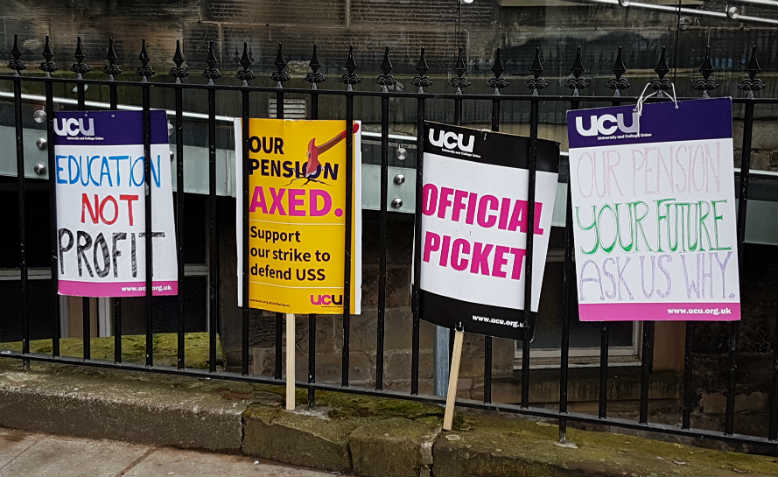 UCU placards. Photo: Wikimedia Commons
UCU placards. Photo: Wikimedia Commons
Preparations for the eight-day UCU strike starting 25 November are underway, reports Graham Kirkwood
UCU branches are gearing up for eight days consecutive strike action beginning Monday 25th November. Sixty universities in total across the higher education sector are involved in either the pay and equality dispute or the pensions dispute or both. Our previous strike last year which took place only in the older (pre-92) universities over pensions saw the longest strike in higher education history in the UK.
At Newcastle University there has been a flurry of activity building up to the action. A packed out branch meeting last week launched the action and since then there have been strike committee meetings and activity workshops planning the days and making materials. Meetings are taking place across the campuses in individual schools, institutes and departments with staff and also students, explaining what is involved and building support.
Casualised staff have been at the fore as they were the last time, only this time we are fighting directly for their interests. The issues of casualisation and temporary contracts has been the number one talking point at meetings with lots of hourly-paid postgraduate researchers getting involved. Teach-outs are planned involving students and already a staff and student climate assembly has taken place with speakers from UCU and school student activists to plan for joint action on 29th November.
And importantly, as we did last time, a local strike fund has been set up with the priority of supporting the lowest paid and those on the most precarious contracts. UCU nationally has also been much more upfront this time on the issue of strike pay. At the University of Essex, organisation is also starting with a staff/student strike committee this week.
There is evidence of management taking a tough approach. At Goldsmiths and Newcastle University they have threatened to dock all eight days pay from one pay packet, a breach of agreements from the last strike where the burden was spread over three or four months respectively. This is a clear violation of equality legislation as this will affect workers with young children the most, especially women and single parents with large childcare bills.
At Newcastle, we have had a comical battle over the presentation of figures with the management trying to present the numbers voting for the strikes as a percentage of all staff, a tactic also adopted elsewhere and probably emanating from the Universities UK handbook of disruptive tactics.
This is shaping up to be quite an eight days. What is evident is that a whole new generation of young activists are learning how to strike, picket and organise solidarity, an invaluable investment for all our futures.

